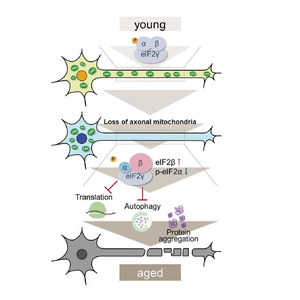Scientists decode abnormal build-up of proteins in neurons that cause Alzheimer’s

A team of Japanese researchers has identified how proteins collect abnormally in neurons which is a feature of neurodegenerative diseases like Alzheimer’s.
Diseases such as Alzheimer’s and Amyotrophic Lateral Sclerosis (ALS) are known to be accompanied by an abnormal build-up of proteins in neurons.
However, the trigger behind this accumulation remains unknown, according to the study that appeared in the journal eLife.
The team, led by Associate Professor Kanae Ando of Tokyo Metropolitan University, focused on the presence of mitochondria in axons, the long tendril-like appendages that stretch out of neurons and form the necessary connections that allow signals to be transmitted inside our brains.
It is known that the levels of mitochondria in axons can drop with age, and during the progress of neurodegenerative diseases.
The team used fruit flies to show that depletion of mitochondria in axons can directly lead to protein accumulation.
At the same time, significantly high amounts of a specific protein were found. Restoring the levels to normal led to a recovery in protein recycling.
Such findings promise new treatments for neurodegenerative diseases, said researchers
“As populations age and the prevalence of neurodegenerative conditions continues to increase, the team’s findings present a vital step in developing therapies to combat these serious illnesses,” the study noted.





